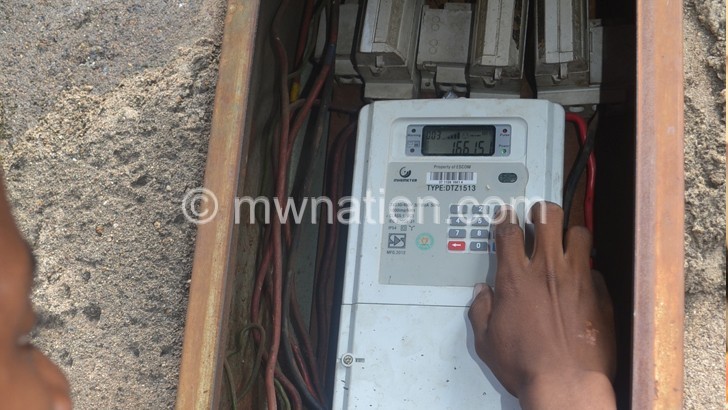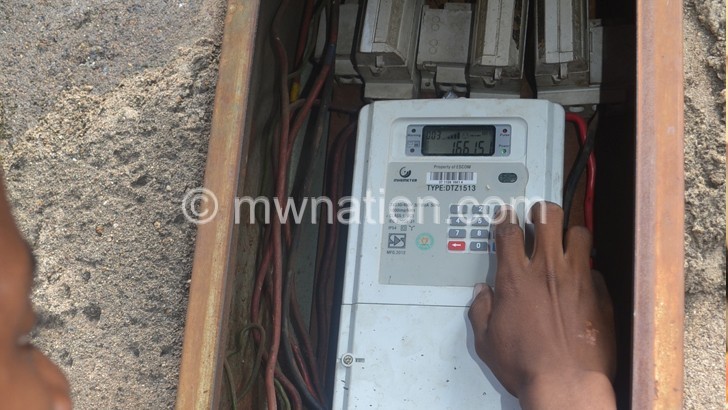
Effective today, consumers will be paying K10 more for every kilowatt per hour (Kwh) of electricity following a Malawi Energy Regulatory Authority (Mera) approval of a 10.62 percent hike in electricity tariffs.
The increase comes two weeks after the energy regulator also increased fuel pump prices; hence, worsening consumers’ economic situation amid the Covid-19 pandemic.

Making the announcement in Lilongwe on Monday, Mera consumer affairs and public relations manager Fitina Khonje said the upward increase in electricity tariffs is due to developments in the economy, including the recent kwacha depreciation by 5.92 percent.
The increase by 10.62 percent means that consumers will now be paying K104.46 per Kwh from K94.43/Kwh.
Immediately after the announcement on Monday, Consumers Association of Malawi (Cama) executive director John Kapito described the tariff adjustment as unjustifiable, observing that consumers are already struggling.
Mera last adjusted upwards electricity tariffs in 2018 when it approved a base tariff by 31.8 percent which was planned to be implemented in phases from 2018 to 2022.
Khonje said Mera acknowledges that Malawians are going through tough economic times induced by Covid-19, but could not wait until Covid-19 eases fearing that the future adjustment could have been beyond consumer expectation.
She said in February last year, the Mera board approved through the Automatic Tariff Adjustment Formula to raise electricity tariff by 7.28 percent as part of the 31.8 percent tranche.
However, Khonje said that due to inefficiencies at Electricity Supply Corporation of Malawi, which saw the supplier failing to achieve key performance indicators, the Mera board slashed down the percentage to 1.65 percent, but it was not implemented because of the coming in of other players on the market.
She said: “The fact that we did not effect the 2020 tariff adjustment, it means Escom might have lost some revenue; hence, we are supposed to allow them recover that revenue; hence, the 10.62 percent increase.”
But Kapito argued that while the pricing of electricity is pegged to the kwacha value, Cama still finds the particular increase unjustifiable, considering the fact that Malawians are already paying one of the highest tariffs in the region.
He stated that kwacha-dollar movement does not trigger such a high movement.
Kapito said: “The reason that Mera has hidden from consumers is that the increase is a result of the establishment of the new parastatal called Malawi Power Limited. The increase in tariffs is to support the operations of the new institution which is unfair to electricity consumers.”
In a statement, Mera board chairperson Leonard Chikadya said Mera noted that as at February 2020, the last time electricity tariffs were revised following the implementation of the second tranche of the base tariff, the exchange rate was at K743.81 to a dollar while consumer price index was at 122.6.
Source: The Nation_March 30, 2021_by Steve Chilundu_Staff Writer
